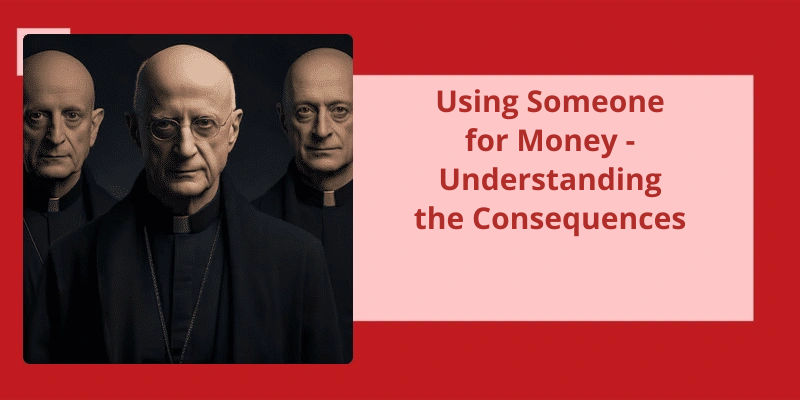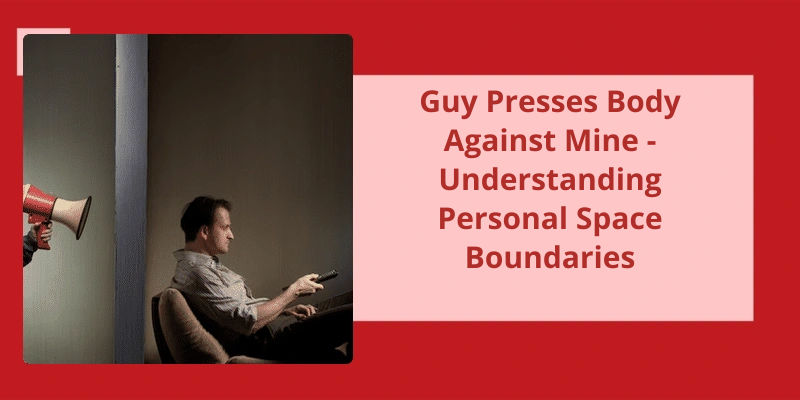The phrase "you don't get a say" is a powerful statement that conveys a lack of control or input from an individual. Whether it’s said in a lighthearted tone or is meant to be taken seriously, this expression effectively removes any possibility for discussion or debate. The implications of this statement may be limiting and often lead to feelings of helplessness or frustration, particularly in situations where a person's input is necessary or valuable. This simple yet authoritative phrase has been used throughout history to stifle opinions and suppress individual thought, often creating conflict or tension. Despite it’s negative connotations, however, it can also serve as a reminder of the importance of respectful communication and listening to others.
What Does Got No Say Mean?
When you say someone has “got no say”, you’re implying that they’ve no power to sway the decision or outcome in a particular matter. It could be in a personal situation or in a professional capacity, but the result is the same – they’ve no role to play in the final outcome.
This phrase is often used when one party has more authority or control than the other. For instance, if a manager refuses to listen to the suggestions of his subordinates, then he’s essentially telling them that they’ve got no say in the matter. Similarly, if a parent makes a decision for their child without consulting them, the latter is left with no say in the matter.
In some cases, “no say” could also refer to a lack of awareness or understanding. For example, if a group of experts is discussing a topic that a layman has no knowledge about, then they’d have no say in the discussion since they lack expertise in the field.
The phrase can also denote a lack of agency or freedom. If an individual is forced to do something against their will or is bound by certain rules or regulations, then they may have no say in the matter. This could be the case, for instance, if an employee is asked to work overtime without being given the option to refuse.
It can refer to a power imbalance, a lack of expertise, or a lack of agency.
Examples of Situations Where Someone Might Have “Got No Say” and How to Deal With Them.
- Being told what to do in a work situation without any input or discussion
- Not being included in decision-making processes for a project that you’re involved in
- Being left out of a family decision that affects you directly
- Feeling ignored or dismissed in a group discussion or meeting
- Being overruled in a partnership or team situation without any justification
Now that we know what “You don’t say” means, let’s explore how this common phrase can have different meanings depending on the situation and tone in which it’s used.
What Does It Mean if Someone Says You Don’t Say?
The expression “you don’t say” is a common idiom used in everyday conversations. It’s a way of expressing surprise or disbelief at something that someone has said. However, the meaning of this phrase isn’t always straightforward and can be subject to interpretation.
If someone uses this phrase in response to something you’ve said, they may be implying that your comment is foolish or unimportant. Alternatively, they might be suggesting that you’re stating the obvious, and that they already knew what you’ve told them.
The phrase can be used to put an unexpected twist on a conversation, making the speaker seem clever or witty. However, the meaning of the phrase can also be quite straightforward, and it’s often used simply to express surprise at something that’s been said.
It may convey a range of emotions, from genuine surprise to sarcasm or insult. Nonetheless, the phrase is a ubiquitous part of everyday conversation, and as such, it’s essential to understand the subtle nuances of it’s meaning to avoid misunderstanding. So, next time someone says to you “you don’t say,” pay close attention to how they’re using the phrase, and you might just learn something new about the person speaking.
What Does Not Saying Anything Mean?
“Im not saying anything” is a phrase that’s often used in conversations and discussions when someone wants to remain neutral. It’s a way of indicating that they don’t have a strong opinion on a topic or may not want to get involved in a debate. This phrase acknowledges that there’s a discussion happening, but it also suggests that the speaker isn’t participating in it actively.
If a conversation is getting heated or someone feels pressured to take a side, this phrase can serve as a non-committal response that allows them to avoid taking a stance. It can also be a sign of disinterest or a lack of engagement with the topic at hand.
However, there are times when “Im not saying anything” can also be a power move. It can be a way for someone to show that they’ve the upper hand in a discussion or to indicate that they’re withholding information. By not saying anything, they may be giving the impression that they know something others do not, or that they’ve already made up their mind and don’t wish to share their thoughts.
If someone is upset or frustrated with the conversation, they may use this phrase to indicate that they aren’t willing to engage further. They might be hoping that others will pick up on their reluctance and back off, or they may be trying to signal that they aren’t pleased with how the conversation is going.
It can be a way of remaining neutral, avoiding conflict, asserting power, or expressing frustration. While it isn’t always the most helpful or productive response, it can be a useful tool for maintaining boundaries and managing social interactions.
Ways to Engage People Who Use “I’m Not Saying Anything” as a Response: What Are Some Strategies to Encourage More Dialogue With People Who Use This Phrase Frequently?
- Ask open-ended questions
- Show genuine interest in their perspectives
- Reflect on what they say and acknowledge their opinions
- Don’t interrupt or become defensive
- Suggest brainstorming sessions or group discussions to encourage participation
- Use humor or storytelling to break the ice
- Respect their comfort level and don’t pressure them to speak
Having your say refers to the opportunity to express your thoughts, opinions, or ideas about a particular topic, and be heard by others. It gives you the chance to contribute to a discussion or a decision-making process, and to have your voice counted. It’s a crucial aspect of personal empowerment and democratic society, as it allows individuals to exercise their freedom of expression and participate in shaping the world around them. In this article, we will explore the importance of having your say, and provide practical tips on how to do it effectively.
What Is the Meaning of to Have Your Say?
Having your say means expressing your thoughts, opinions, ideas, or feelings in a discussion, debate, or decision-making process. It’s a fundamental right that allows individuals to articulate their perspectives and contribute to shaping the outcome of a situation. Having your say empowers people to voice their concerns, advocate for their interests, and participate in democratic processes that affect their lives.
Having your say is especially crucial in situations where power dynamics are unequal, such as in social justice issues or conflicts between different groups. It can provide a platform for marginalized communities to speak out against injustice, discrimination, and prejudice and demand accountability and change. Having your say can also help to bridge divides between different groups by promoting dialogue, understanding, and empathy.
Conclusion
However, as we grow up we come to realize that this expression isn’t only limited to parental control but is also prevalent in various social and political contexts. It often indicates an unequal power dynamic where one person has the authority to control the conversation while the other is silenced. It highlights the importance of empowering all voices and individuals to share their opinions and ideas without fear of being shut down or dismissed. Ultimately, "you don't get a say" should be viewed critically and challenged, as it can perpetuate systemic oppression and hinder progress towards a more equitable society.






